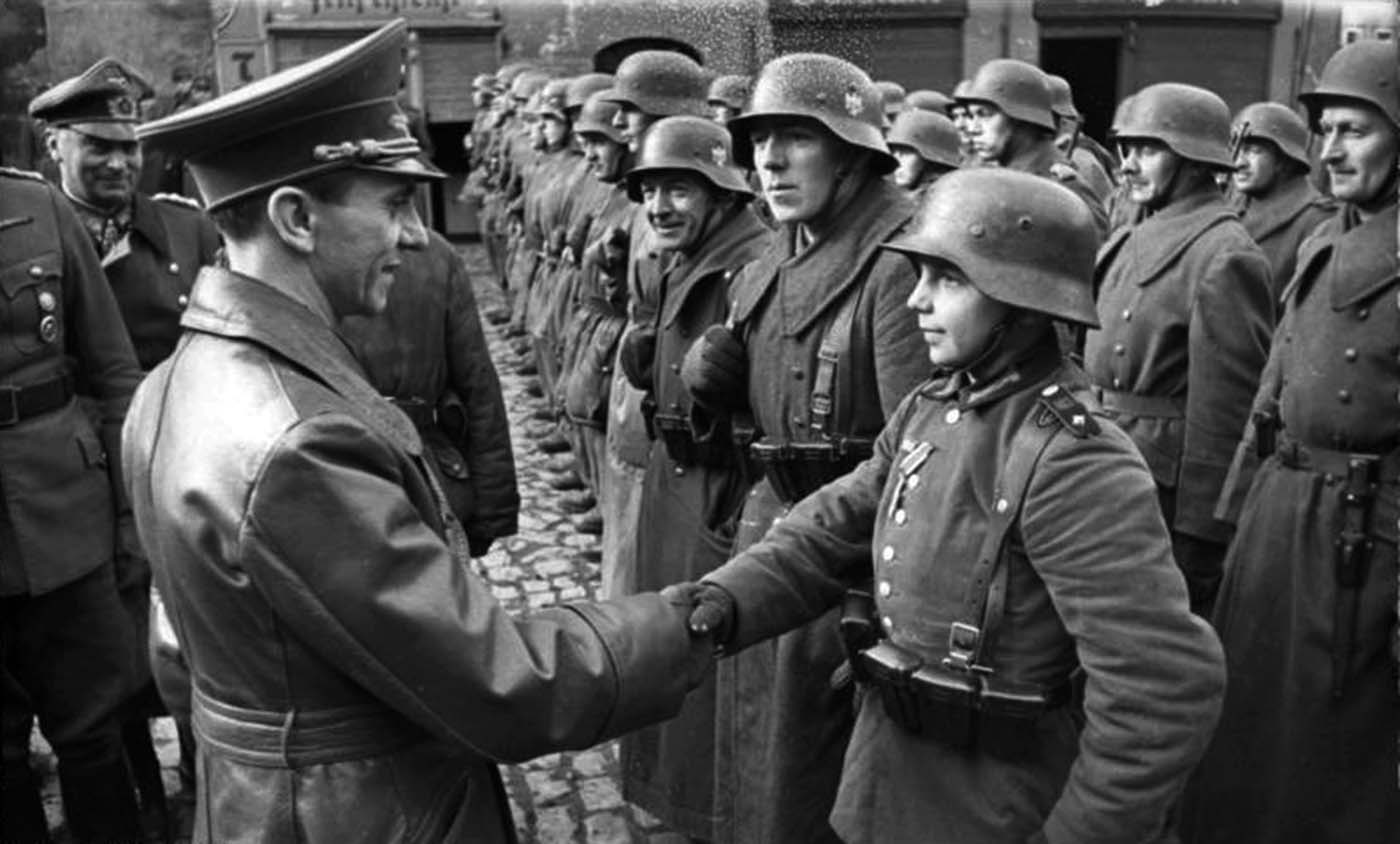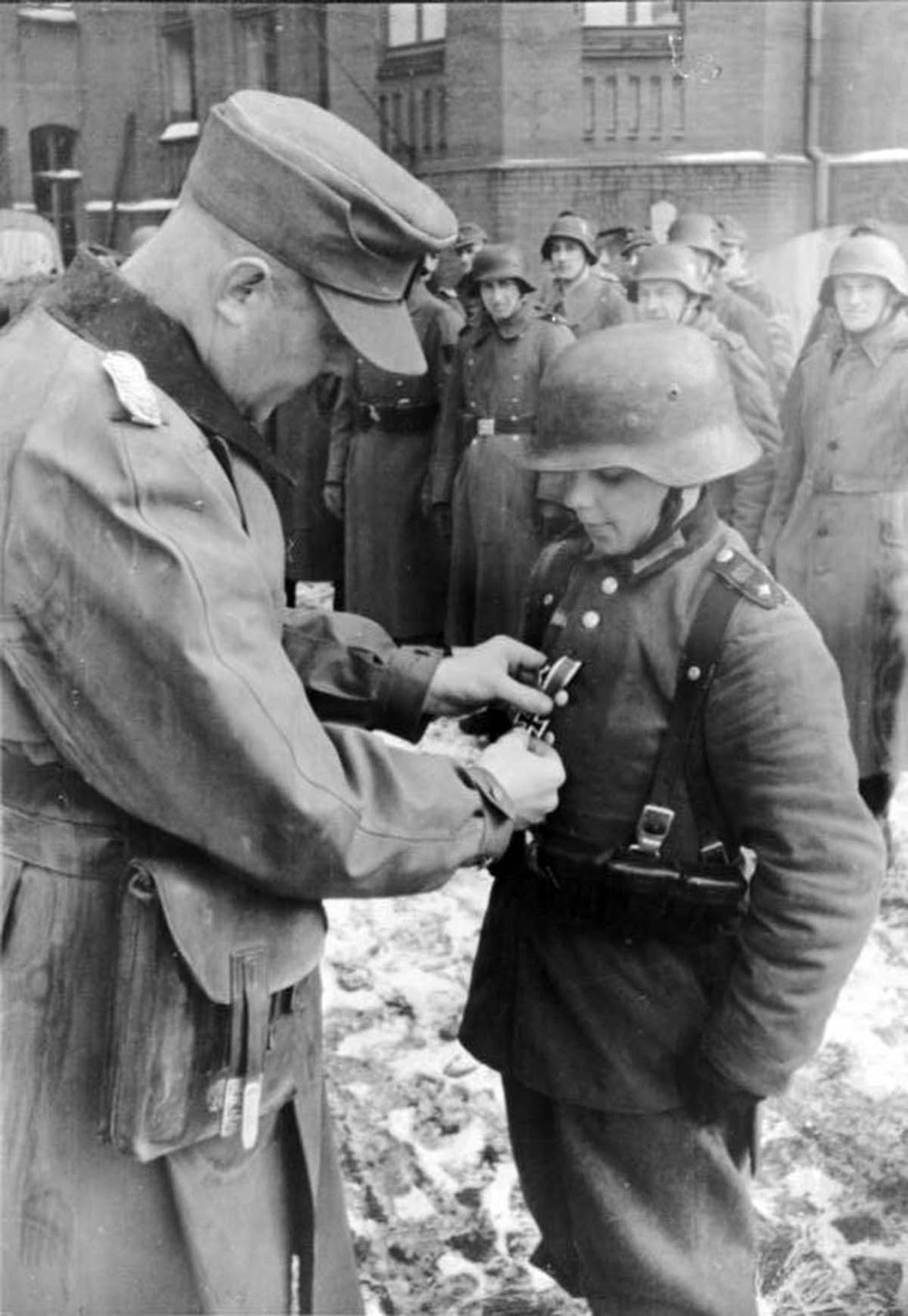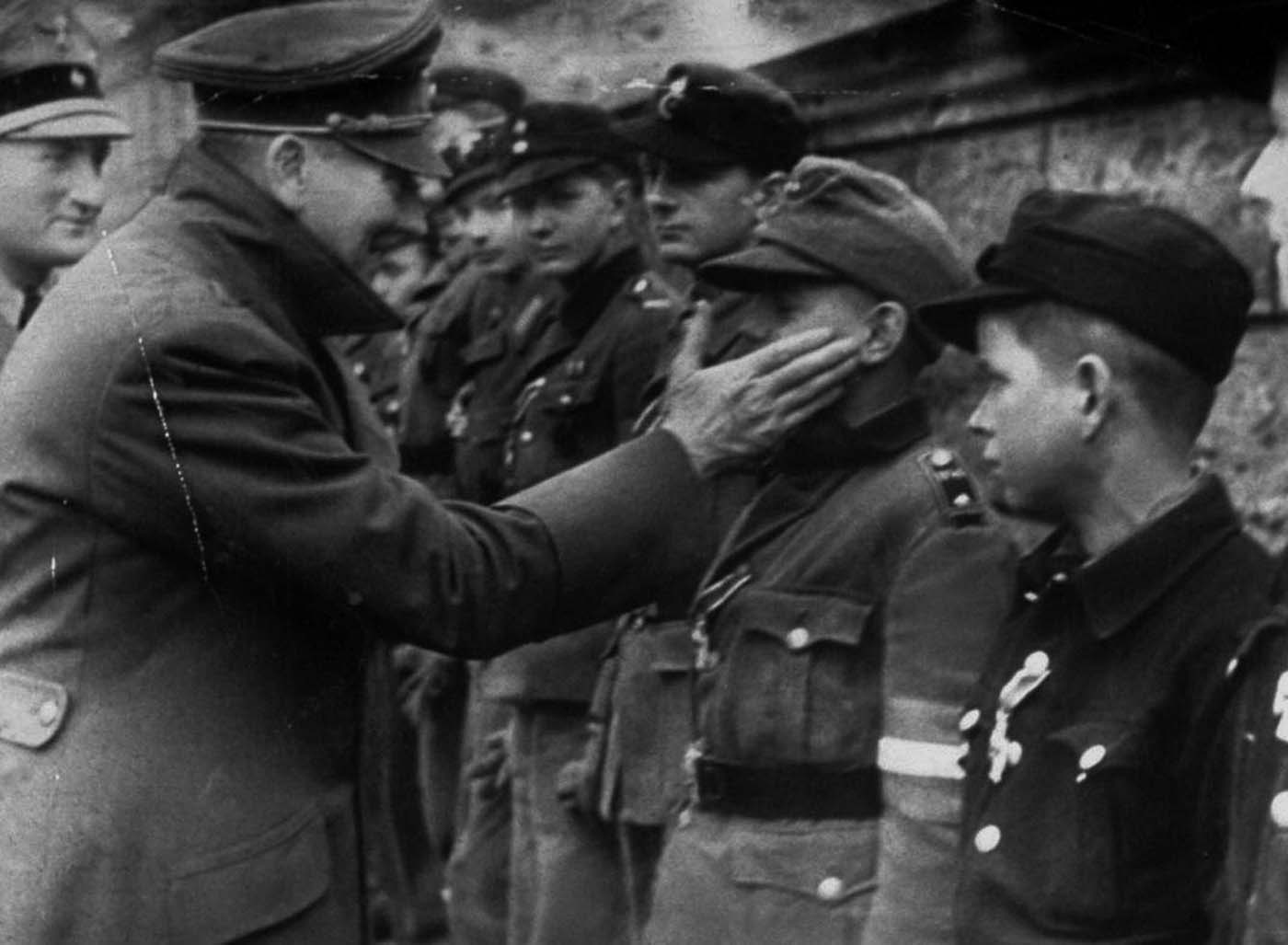Wilhelm 'Willi' Hübner - one of the youngest recipients of the Iron Cross, 1945

As casualties increased during World War II, Germany was forced to call in always younger soldiers to fill the ranks of the Wehrmacht. The situation was so dire at the end of 1944 that boys born in 1928 were called up to serve the Fatherland.
He was 15 or 16 years old and grew up under the shadow of Nazism. Each would have spent their teen years in the Hitlerjugend (Hitler Youth) preparing them for military service.
The net result was a cadre of young people who were surrounded by Nazi propaganda and called to serve the wetland they were raised and trained to defend.
In many cases, they fought bravely against overwhelming odds, but the lives of thousands of these youths were ruined by being thrown into battle with the Allies, when the war was already lost.
One of these young soldiers was Willy Hubner, a 16-year-old envoy with the Führer Grenadier Division. In early March 1945, the Führer Grenadier Division was part of a counterattack to retake the Silesian city of Lauban.
After 8 days of fierce fighting, the city was secured, and Die Deutsche Wochenschau's cameras were there to capitalize on this success for propaganda purposes.
Habner was first introduced in Lauban by the Minister of Publicity Joseph P. The Eisnernes Kreuz 2nd class (Iron Cross 2nd class) was awarded by Goebbels. At the age of 16, he was one of the youngest people to receive the award.

A day later he was taken to Berlin, given a new uniform, re-decorated by Artur Axmann, and asked to wait to meet Hitler. On 20 March 1945, an award ceremony was held in the gardens of the Reichskanzlei in Berlin for members of the Hitlerjugend who had distinguished themselves in the war. The footage of this incident is very famous, as is the last known footage of Hitler to be recorded.
Willy Hubner was forced to tell his story to the cameras: "While the Russians were closing in on Lauban, I reported voluntary duty as an emissary to the combat commander.
My task was to move the dispatch to different command posts. I often carried provisions and Panzerfaust (literally "tank fist" a disposable anti-tank weapon) to the front line under fire. I carried the Panzerfaust in a wheelbarrow under enemy fire.

Willi Haubner (1929-April 12, 2010) survived the war and settled in Landshut, Bavaria, becoming a fine engine mechanic. He was interviewed for several documentaries including 'We Was for Victory' and 'The World at War'.

No comments: